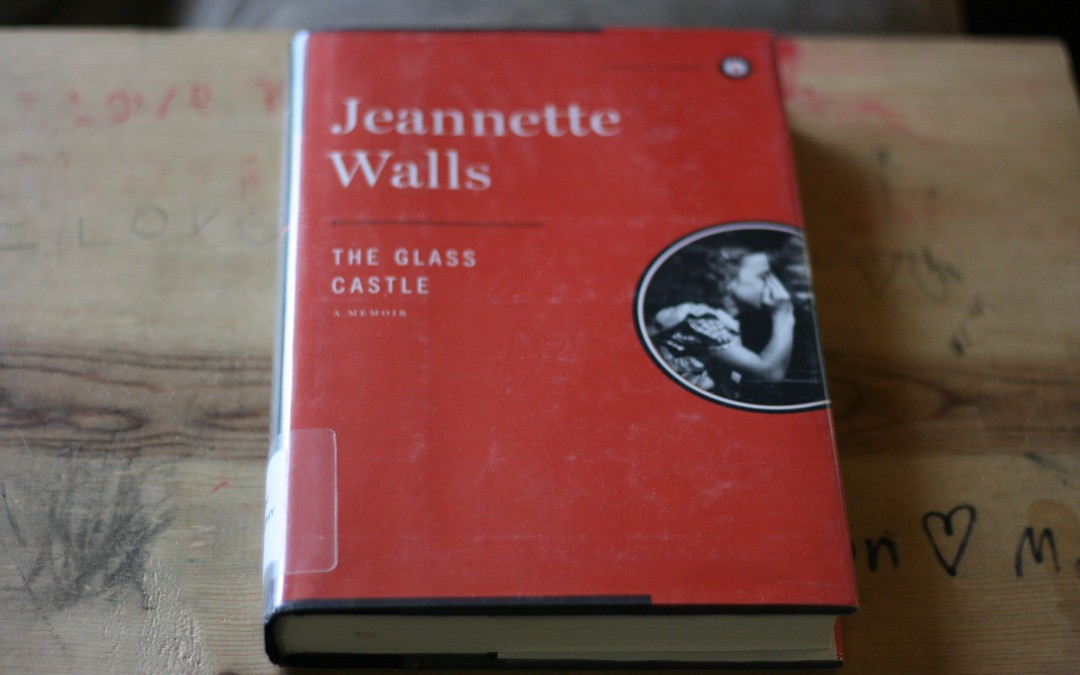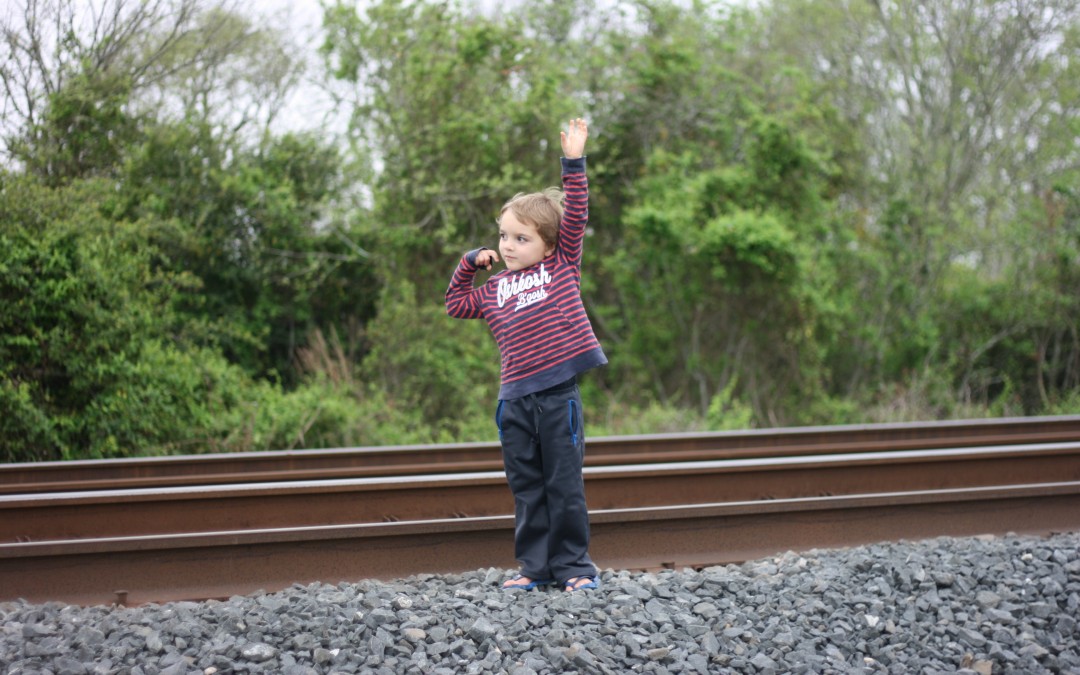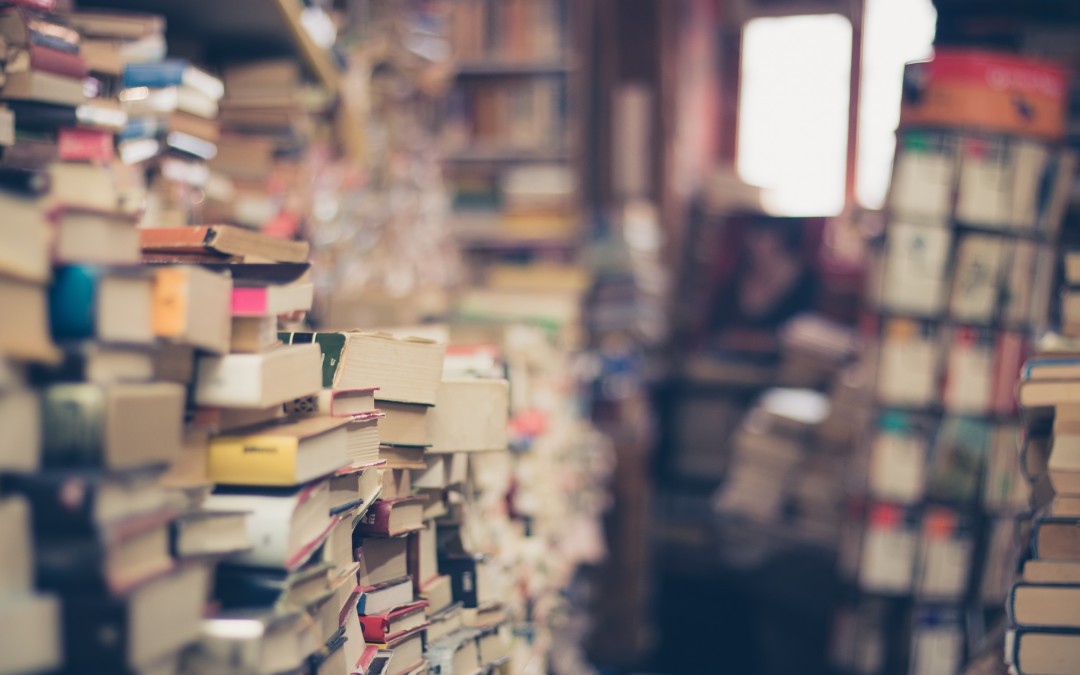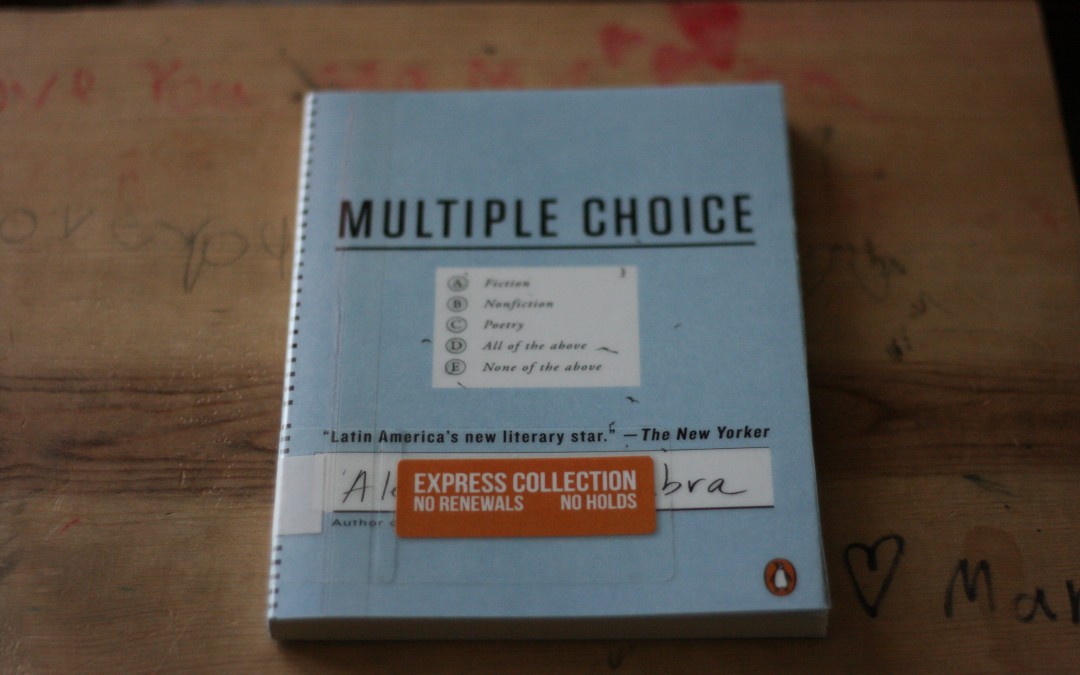What You Really Need for a Kid’s Birthday Party
In this episode of On My Shelf, I’m talking about the Pinterest effect of kids’ birthday parties.
In this episode of On My Shelf, I’m talking about the Pinterest effect of kids’ birthday parties.

Today I’d like to share with you two heartfelt memoirs that will make you feel every emotion humanly possible.
The Glass Castle, by Jeannette Walls is sort of a classic in the memoir genre. It’s highly regarded on every list of best memoirs to read. I had never read it myself, but once I did, I understood completely why it’s there.
This story was incredibly heartbreaking. Walls and her brother and sisters grew up devastatingly poor and were the children of neglectful parents. They didn’t really know any of that at the time, of course, not until they were older, but they had hints of it in their childhood. What stood out most about this fact and about the book in general was that Walls told the whole, brutal truth about her parents’ inability to care for her and her siblings, but she did it all in love. No matter how awful the situation was, she approached it with grace. This is the power of writing a memoir years removed from the experience.
Rex and Rose Mary Walls moved their children around, always chasing the next unlikely dream Rex had in his heart. Rose Mary often left the kids to themselves while she painted, chasing her own unlikely dream. Sometimes the family didn’t have anything to eat but butter, because neither parent worked. Rex was a brilliant man with a brilliant imagination, and he mostly made life fun, when he wasn’t drunk. Rose Mary could not bear the responsibility of providing for her family, and because Rex was always chasing his next big dream, the family didn’t often have money for anything. But Rex and Rose Mary were also too proud to get government help. It was a very tragic situation for the children.
At times this book was so very sad—because while you felt angry at the parents for not really taking responsibility the way they should have, it was also obvious how much they loved their children—especially Rex.
Walls has a poetic style of writing that made the story that much more enjoyable. I was never once bored, because she has such a gift for capturing a moment and creating three-dimensional characters that you could not help but love, even while you hated. It was excruciating to read about the poverty they lived through with such parents. I was poor as a child, but I was not that poor.
What I liked most about this book is that Walls also showed how she and her siblings escaped the toxic situation with her parents. They broke free of their parents’ grip, which raised the question: would they have been so persistent and determined if they hadn’t lived through these circumstances? It’s impossible to tell.
Here’s one of my favorite quotes from The Glass Castle, which showcases the kind of poverty Walls lived in:
“We called the kitchen the loose-juice room, because on the rare occasions that we had paid the electricity bill and had power, we’d get a wicked electric shock if we touched any damp or metallic surface in the room. The first time I got zapped, it knocked my breath out and left me twitching on the floor. We quickly learned that whenever we ventured into the kitchen, we needed to wrap our hands in the driest socks or rags we could find. If we got a shock, we’d announce it to everyone else, sort of like giving a weather report. “Big jolt from touching the stove today,” we’d say. “Wear extra rags.”
The second memoir I recently finished was A Mother’s Reckoning: Living in the Aftermath of Tragedy, by Sue Klebold. If you don’t recognize this name, Klebod is the mother of Columbine shooter Dylan Klebold. The Columbine shooting was the most violent school shooting in the history of the United States and happened on April 20, 1999 in Littleton, Colorado.
This book was only recently published, and it’s been on my list for a while. This is the first time Klebold has broken her silence about her son, at least in written form, and this book was a beautiful offering to the public.
I truly cannot say enough about it. In A Mother’s Reckoning, Klebold takes readers by the hand and walks them through what life was like with Dylan. It might surprise you to know that he was mostly a regular kid. He didn’t get in much trouble, didn’t cause much trouble, didn’t require much in the ways of discipline and redirection. In the days after the Columbine shooting, there was a lot reported about Klebold and her husband—how they’d been terrible parents, how Dylan must have been abused because that’s the only reason someone would want to go on a killing spree, how this could never happen to good parents. But Klebold’s book proves that this could happen to any of us.
The Klebolds were a family that sat around a dinner table and talked about their days. I do this every day with my family. They supported each other in their school and work functions. My family does this, too. They loved each other. Of course every family does.
Klebold had no idea, until after the tragedy, that her son was severely depressed. So her book is mostly an entreaty for parents—to look hard for the signs of depression. To pay attention. To find the places where our children are hurting and try to heal them with professional help, if need be.
A Mother’s Reckoning was a love poem, a memoir, a valuable offering to a public that has wondered about what went wrong in the homes of Dylan Klebold and Eric Harris. Klebold shares candidly and honestly, and nothing she writes is without grace and honor and love. She does not make excuses for her son, but she writes so that she can raise awareness about brain health disorders and equip parents to recognize it, accept it and do something about it. This is a book I think every parent should read, without exception.
I hope you’ve enjoyed these book recommendations. Be sure to visit my recommendation page if you’re interested in seeing some of my best book recommendations. If you have any books you recently read that you think I’d enjoy, don’t hesitate to get in touch. And, if you’re looking for some new books to read, stop by my starter library, where you can get a handful of my books for free.
*The books mentioned above have affiliate links attached to them, which means I’ll get a small kick-back if you click on them and purchase. But I only recommend books I enjoy reading myself. Actually, I don’t even talk about books I didn’t enjoy. I’d rather forget I ever wasted time reading them.
In this episode of On My Shelf, I’m talking about the most helpful resource for writing kid-lit I’ve ever read.
Book links:
The Magic Words: http://amzn.to/2fvZuah

Husband: Give me the fly swatter.
4-year-old: But I want to die a fly.
Husband: You want to die a fly?
Me: Well, that is quite an aspiration.
9-year-old: Mama, I have DNA samples of myself on my desk.
Me: Oh, really?
9-year-old: Yeah. A fingernail, a toenail and hair. I was hoping to go to a science place and clone myself so one of me could go to school and one could stay home.
Me:
9-year-old:
Me:
9-year-old: What?
5-year-old [bouncing on Husband’s back]: You’re…really…squishy.
Husband: The reason we don’t do that is because [blah blah blah]
9-year-old: You’re overwhelming me. You’re using too many words.
5-year-old: Daddy, I have to go pee.
Husband: So go pee.
5-year-old: My brother is already peeing. I guess I’ll have to pee on his face.
Husband: That is definitely not an option. Nope.
4-year-old: I forgot.
Me: You forgot what?
4-year-old: I FORGOT!
Husband: You forgot to talk?
4-year-old: YYYEEEEESSSSSS.
Me: I don’t think you’ve ever had a problem with that, actually.
6-year-old: Sometimes when I’m running, I trip over my leg.
Me: Well, that sounds like a problem.
6-year-old: Yeah. It is.
Husband: What do you want to be when you grow up?
4-year-old: I want to be a caveman when I grow up.
Me: That shouldn’t be too hard.
9-year-old: Daddy, while I was getting dressed, I was thinking about all the different ways you can kill a chicken.
Husband:
9-year-old:
Husband: That’s sounds…normal.
7-year-old: Hey, Mama. Guess what?
Me: I hate guessing games.
7-year-old: But guess what.
Me: What.
7-year-old: Nothing.
Me:
7-year-old: I made that up.
9-year-old: We’re starting a mine in our back yard. Asa’s digging, and we’re picking up strange rocks and old wood.
Me: Oh! I’m so excited!
9-year-old: You’re being sarcastic, aren’t you.
9-year-old: You’re the only parents in the whole world who make their kids do chores!
Husband:
Me:
9yo:
Husband & Me: hahahahahahahaha
Husband: Where is your brain?
4-year-old: In my tummy.
Me: Sounds about right.
Me: Did you know I won a poetry award today?
4-year-old: Because you burp really loud?
7-year-old: Daddy it’s raining!
Husband: I know. It’s crazy. My weather app says it’s zero percent chance of rain.
7-year-old: How does the weatherman keep his job when he’s wrong so much?
Husband: In the future, when we come to church, you need to not wear flip flops. And pants with no holes in them.
8-year-old: Yeah, and I should also probably wear underwear.
Husband:
8-year-old: Regrettably, I had a little bit of diarrhea in my underwear this morning.
Husband:
8-year-old:
Husband: Well, then.
9-year-old: So we’re not going to the pool?
Husband: No. We told you guys to clean up, and you didn’t.
9-year-old: I was going to come downstairs, but my brothers were chasing me with a banana.
7-year-old: Did you hear my toot? It made me go really fast.
Me: Too bad the smell didn’t go really fast with you.
7-year-old: [laughing hysterically]
Me: [passing out on the floor]
9-year-old: If you touch a fly and put your finger in your mouth, will you die?
Me: Why would you want to?
9-year-old: Maybe accidentally?
Husband: No. Think about it. You live in a house with twins. They’ve done much worse, and they’re still alive.
9-year-old: I’ll probably be really popular now that I’m the son of an author.
Me: Just make sure you wear deodorant.
9yo: Why?
In this episode of On My Shelf, I’m talking about two poetry reads that were interesting and unusual.
Book links:
Multiple Choice: http://amzn.to/2eAIQUV
Voyage of the Sable Venus: http://amzn.to/2eiPZOm
In this episode of On My Shelf, I’m talking about the hilarity of the new Ghostbusters movie.

We’ve all heard it before. There is this timeless advice that’s always given to writers. It sounds like this: Write what you know.
This advice is a little confusing. Should you only write what you know? Does that mean I have to always write from the perspective of a white female who fought her way through eating disorders and brain health issues and a father hole that nearly ate her alive? What does writing what you know even mean?
Well, “write what you know” means something different to me. Writing what I know means the whole world is open to me. Because if I don’t know it right now, I can learn it.
[Tweet “‘Write what you know’ is an endless possibility. If you don’t know it, you can learn it.”]
Write what you know is simplistic advice, but the followup that people don’t often tell you is that you have the ability to know so much more than what you have lived. When we’re constantly learning, we can know a whole lot. I am curious about so many things in this world—right now those things happen to be extinct animals and fabled monsters and women who have made their mark in science. In the past, I’ve been curious about autism and the history of public libraries and the most famous haunted houses in the world.
My curiosity drives my learning. When I find myself insatiably curious about a particular topic—ghosts, say—I will research it to the ground. I learn as I research. And I know as I learn (I know that sounds funny. But it’s true.).
There are many, many ways we can learn what we need to know in order to write what we know. Some of my favorites include the following:
1. Take a trip.
My kids and I have been visiting railroad tracks every time we go on a trip. We are fascinated by railroad tracks. I have a great-grandfather who grew up on a railroad car, and I plan to write a story about him soon. But in order to do that, I have to know the tracks. I have to touch them and feel the cool metal beneath my fingertips. I have to walk their uneven path. I have to climb up the rocks that my great-grandfather would have climbed as a child.
Recently I returned to my high school track, which was also my middle school track, because I’m from a tiny town where we all share resources. I was writing the rough draft of a story about a girl who ran the 400-meter-dash. I wanted to run it again, to see what it was like. I had run it in middle school and a couple of times in high school, but I wanted to experience it, again, for myself, so I would have an accurate way to describe the way the body turns to mush when on the last stretch before the finish line.
This is how you learn and know. Travel and experience is one of the most enjoyable forms of learning.
[Tweet “Travel and experience are some of the most enjoyable forms of learning.”]
2. Talk to people.
This may stem from my past in journalism, but I absolutely love sitting across the table from another person and listening to their story. I love collecting information from the interesting people I meet. I enjoy hearing about history from a person who has actually lived it. In college, I did an oral history of a Vietnam veteran, and it was one of the most enjoyable projects I’ve ever done.
If I find myself obsessed with World War II, I’m going to find someone who lived through it and listen to his or her stories. If I want to know what it was like raising a blind child, I’m going to find someone who did. If I can’t write another page of my story without knowing what it’s like living on the streets, I’m going to head downtown and talk to the homeless of my city.
People can help us learn and know.
3. Read books.
Books are fantastic resources for going deeper into any subject. I know we have google now, and you can find anything online, but if you want to learn the nuances of whatever subject you’re writing about, a book is the better way to go. The Internet only has so many resources, and I know google is trying to become the search engine of the world by including all the information from books you would ever need, but there is nothing like diving into a long book to get the whole and complete story. Sure it takes a while. But you will retain that information and have it at your fingertips any time you decide to write what you know.
Pursue knowledge, and writing what you know is not a limit at all. It’s an endless possibility.
[Tweet “Pursue knowledge, and writing what you know is not a limit but an endless possibility.”]
In this episode of On My Shelf, I’m talking about how writers can crush the You’re Wrong Voice.
In this episode of On My Shelf, I’m sharing the value and challenge of community.

First, I have to say, I read poetry every single day. I’m a firm believer in how poetry can help its readers increase their grasp of language and metaphor and the simplicity of life made complex. I love reading poetry, and recently I picked up Multiple Choice, by Alejandro Zambra.
Zambra is a Latin American poet who pushes the poetry form in a very interesting way. His entire book is structured like a standardized test. I know this sounds weird, but it was really, really interesting. He broke the book down into several sections, including a strictly multiple choice portion, a comparison portion, and a portion with short narrative passages and multiple choice questions about those passages. This was probably the most interesting poetry book I’ve read to date.
What his form did for readers is it gave them an opportunity to participate in the meaning of the poem. Poets usually do this anyway—they write a poem, we have the privilege of interpreting it through our life’s lens. But Zambra did this even more intentionally by asking readers questions and giving them choices for how the resulting poem would be structured. I found this fascinating.
Zambra is funny, introspective, political, mysterious and poignant. He writes about family and love and authoritarian living, and, at the heart of Multiple Choice, he explores the difference between thinking for ourselves and walking the world as trained, obedient people. I loved the creativity of his form, the flow of his narrative passages and the limitless possibilities he gave me to interpret his poems. It was a poetry book well worth reading.
Robin Coste Lewis’s poetry debut, Voyage of the Sable Venus: and Other Poems, won the National Book Award for poetry. Her book is a meditation on the black female and was riveting and beautiful in its own way.
Lewis bookended her title poem with autobiographical poems that examined what it was like living in the world as a black female. Her middle section was a log of titles of artwork from ancient times to the present time that featured or commented on the black female. She used those titles to craft a long, drawn out collection of free verse poems that included lines like “Black female holding a bowl,” “Black female kneeling by a master” and others. It was an interesting look at the way the black female has been portrayed in historical times up to the present.
Lewis explores stereotypes, the construction of our histories and our selves, and the impact of art on race and relationship. Voyage of the Sable Venus was a beautiful offering to the world of poetry.
I hope you enjoyed these book recommendations. Be sure to pick up a free book from my starter library and visit my recommends page to see some of my favorite books. If you have any books you recently read that you think I’d enjoy, contact me. I always enjoy adding to my list. Even if I never get through it all.